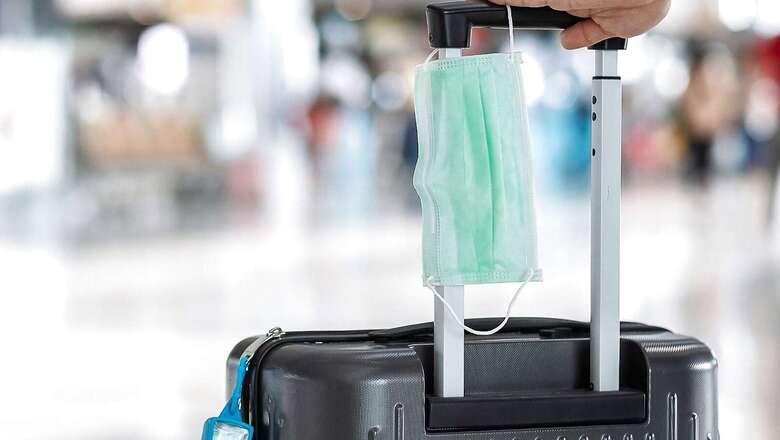
views
Recently, Aryan Khan was granted bail three weeks after he was arrested under the NDPS Act, 1985 by the Narcotics Control Bureau (NCB). He was in Mumbai’s Arthur Road Jail since October 8 and denied bail twice, but was finally granted bail by the Bombay High Court with 14 conditions, such as execution of a personal bond of Rs 1 lakh among other things.
In this article, I will examine the rights of a person pertaining to travelling abroad when they are out on bail, convicted or acquitted in India.
Can One Travel Abroad When Out on Bail?
The right to travel is an important subset of the fundamental right to dignity and personal liberty. What are the travelling rights of a person out on bail? Can a court make the ban on travelling abroad a condition for granting bail?
In the current case, while Aryan Khan is out on bail, he has been asked to surrender his passport and not leave the country without prior permission from the special judge for NDPS at Greater Mumbai. Additionally, if he wishes to go out of Greater Mumbai, he will have to provide his itinerary and inform the investigating officer.
Interestingly, a recent judgment by a Bench led by Justice D.Y. Chandrachud answered this particular question. The judgment mentioned that a competent court can use its discretion to impose “any condition” for granting of bail under Sections 437 (3) and 439 (1) (a) of the Code of Criminal Procedure, which inevitably includes imposing certain travelling restrictions as well.
But it was also highlighted that this discretion has to be “guided by the need to facilitate the administration of justice, secure the presence of the accused and ensure that the liberty of the accused is not misused to impede the investigation, overawe the witnesses or obstruct the course of justice.”
In many cases, the courts allow the undertrial to travel abroad for medical or important personal reasons after prior permission. However, taking up employment or settling abroad becomes much more difficult as most countries are unwelcoming of foreign nationals with a criminal record.
What is a Criminal Record?
A criminal record of a person reflects the record of offences for which the person has been convicted (where one has either pleaded guilty or has been found guilty following a trial). In case of an undertrial, the record of pending FIRs is also visible. Visa applications or passport rights may get affected in case of a criminal conviction or when a person is facing trial for serious offences.
Police clearance certificate has to be submitted along with applications for long-term and work visas. Travel rights also depend on the rules and restrictions on visas of the country a person is planning to visit. Some countries do not allow people to enter if they have a criminal record; some others may only allow if one applies for a certain type of visa. Those convicted or undertrials for offences like racism, crime against women and children, possession of narcotic drugs are denied visas by most countries. With the world well connected due to the internet, it is difficult to bypass screening procedures and cross the borders.
Acquittal, on the other hand, does not leave an adverse criminal record.
It is worth noting that a judgment of the Punjab and Haryana High Court states that a passport cannot be refused to a person acquitted in a criminal case even if an appeal against the acquittal is pending.
Under Surveillance
Although fundamental rights such as right to travel etc. of an undertrial or an accused remain intact unless they are convicted, the courts have the discretion to impose severe restrictions. Further, a person out on bail is always identified by the surveillance systems and must report to investigating agencies, surveillance departments while travelling within the country and abroad, depending on the conditions of the bail.
The author is advocate, Bombay High Court and founder of the legal firm Satya Muley & Co. The views expressed in this article are those of the author and do not represent the stand of this publication.
Read all the Latest Opinions here




















Comments
0 comment